John Hurrell – 8 January, 2012
First thing is that the display looks aestheticised. It doesn't seem to go beyond a conventional installation display. For example can the artists get a key quickly to deposit or remove work if they so desire? Can it change? (What if exhibiting opportunities suddenly come up?)
Auckland
Recent graduates
To Take Place
16 December 2011 - 16 February 2012
Looking at the title and the brief description of the artists in this Christmas holiday show in Window, when I first read it I thought it was ‘recent graduates’ of several tertiary institutions in Auckland - and that perhaps it was a distant relation of a Michael Asher project he made in October 1977. Asher is considered one of the founders of institutional critique and in some possibly revisionist assessments a precursor of relational aesthetics. In this artwork he got the employees of three different LA art museums that were in close proximity to agree to put their cars in a common car park over a period of six weeks. Normally they parked in separate lots but this short term agreement encouraged fresh social interaction and mingling.
So I wondered that if graduates from AUT, Elam, Whitecliffes, Manukau, Unitec etc. were using the Window space to temporarily store artworks, that might be a clever way of breaking down Auckland’s art education tribalism.
However upon closer examination of Ben Clement’s press release for this project, it is clear ‘recent graduates’ means specifically ‘recent Elam graduates’. I had misunderstood. It is an Auckland University project that provides storage for artists that have recently created work awaiting exhibition opportunities. Something not so generous, but interesting in other ways. It provides a service for a start.
The transformation of space for this duration will reflect on the transitory time that follows the making and display of work within the institution. By offering a service suited to the location and physical properties specific to the Window space, it hopes to make visible the practicalities of periods of transition and possibility, as one moves outside the architecture of art school. More broadly, the show seeks to consider storerooms as spaces of latency and potential.
Eighteen artists have works in this narrow gallery - on the shelves or leaning against walls. They are Henry Babbage, Matt Beamish, Katrina Beekhuis, Georgina Brett, Heidi Brickell, Dorota Broda, Clara Chon, Ben Clement, Mei Cooper, Natalie Guy, Elisabeth Hyde-Hills, Alvie McKee, Louise Menzies, Toby Raine, Jody Salmond, Hannah Valentine, Bob van der Wal and Sarah Yates. There are thirty stashed items, often encased in bubblewrap, seen in part or from behind, and through transparent or translucent glass.
Rebecca Boswell and Ben Clement curated the show in conversation with current curators; Rebecca, Melanie Bell, Sue-li Tasker Yeo and Alex Davidson. The title To Take Place confirms the intention that the exhibtion seeks to consider storerooms as spaces of latency and potential.
So is there something interesting here or is this a stunt to generate attention? Which of course by discussing I’m playing along with.
First thing is that the display looks aestheticised. It seems carefully composed. Nothing is just dumped on the floor or like an Arman sculpture where objects are left loose in a sealed plexiglass box. But it is not namby-pamby either. It is not slick, yet it doesn’t go beyond a conventional installation display. For example can the artists get a key quickly to deposit or remove work if they so desire? Can it change? (What if exhibiting opportunities suddenly come up?)
If not, then perhaps the alleged ‘space of latency and potential’ is really one of experiential actuality and ideational manifestation - as presented and grasped now. What if say somebody from the Chartwell Collection came knocking and said, we’d like to acquire this as a static exhibit to be reshown at AAG as it is, would the artists demur? Would they be happy that all potential and latency would become fixed and determined? ie. Thwarted.
Let’s imagine these artists don’t want to go down that road, that they want viewers who visit the University Library site to guess at the nature of what is hidden - judging by peering through the glass and remembering what they know of the artists from student shows - and to know that these items might be exhibited ‘normally’ at some nearby date in the future outside the university. Those visitors can also speculate by reading the takeaway list of works (with materials provided), which has the artists listed alphabetically (using first names) and in which the last on the list are flipped onto the top of the sheet - mimicking the display.
This exhibition then is both ‘to take place’ - and ‘to take the place of’. It occurs as an artwork in its own right and also speculates about the stored items ‘taking place’ in other galleries. It however could be a substitute for the latter, curtailing the potential represented by its contributions by fixing the arrangement of those stored items into something permanent.
John Hurrell
Recent Comments
John Hurrell
Since this post the curators have reassured me that contributors were indeed told access to their work during the show ...
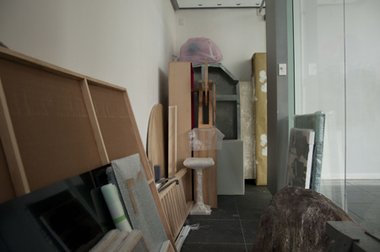
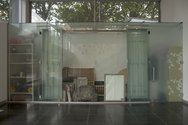
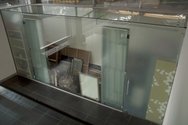
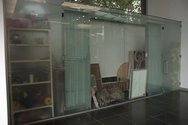




 Two Rooms presents a program of residencies and projects
Two Rooms presents a program of residencies and projects Advertising in this column
Advertising in this column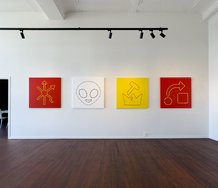
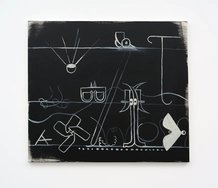
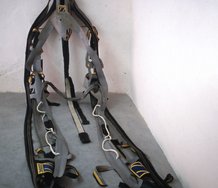
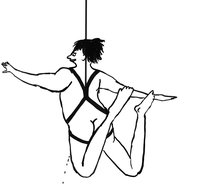
This Discussion has 1 comment.
Comment
John Hurrell, 2:52 p.m. 12 January, 2012 #
Since this post the curators have reassured me that contributors were indeed told access to their work during the show would be facilitated, in keeping with the concept of using the space as a temporary storeroom.
Participate
Register to Participate.
Sign in
Sign in to an existing account.